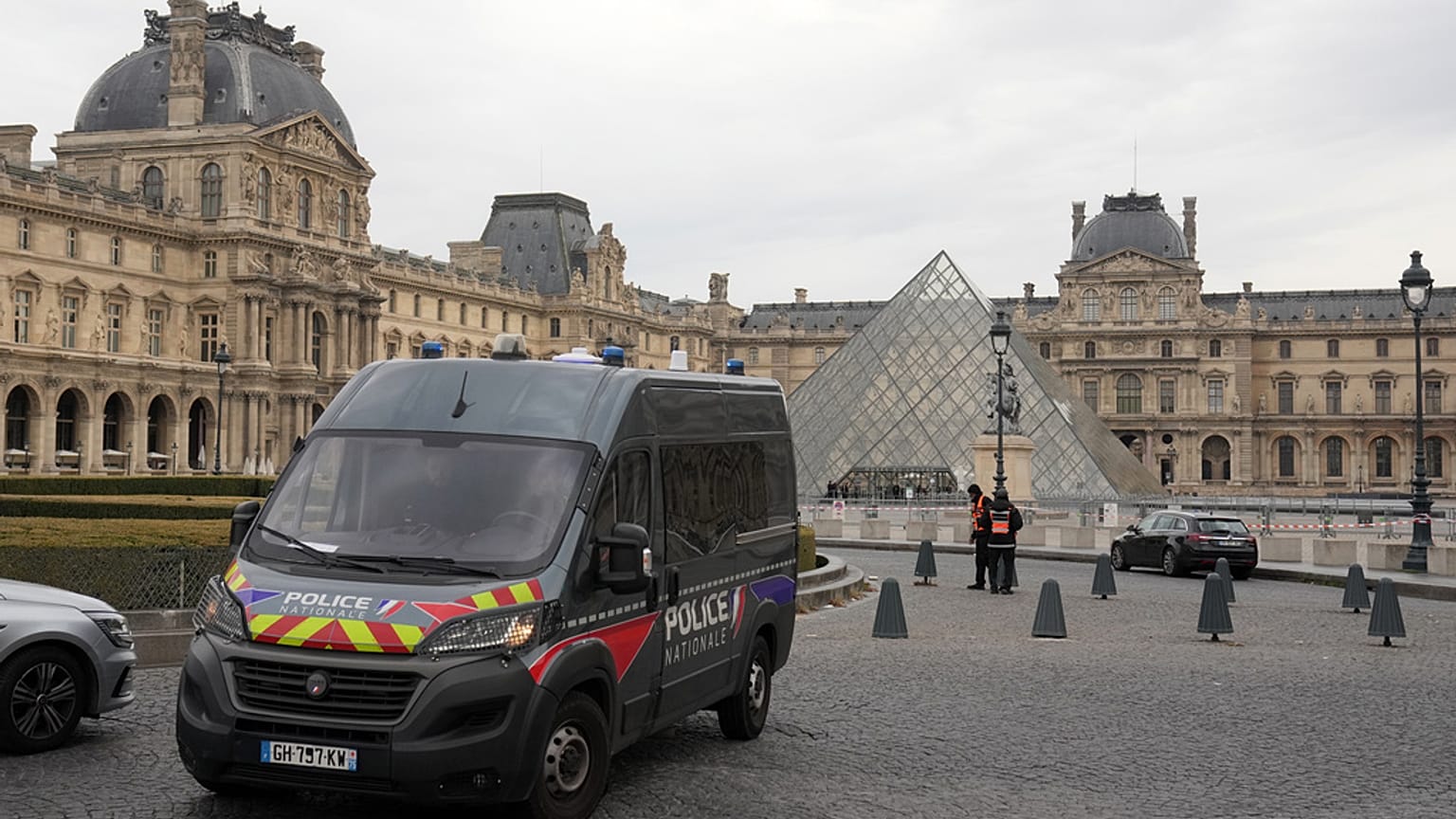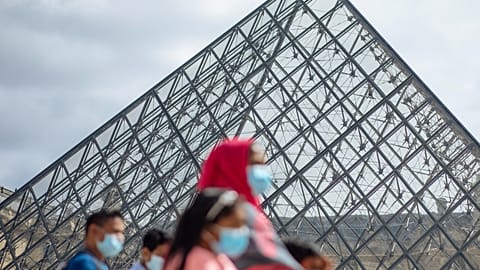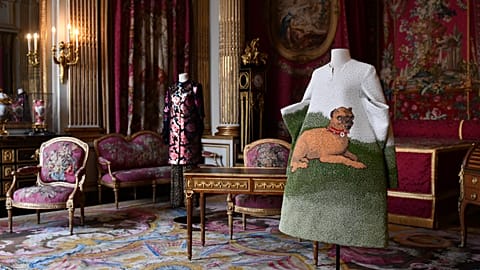The theft, the first significant robbery at the Louvre since 1998, has captured international attention and reignited debate over security measures taken to ensure the protection of France’s cultural heritage.
The Louvre Museum in Paris will remain closed on Monday following a daring robbery in which eight priceless royal jewels were stolen in just seven minutes.
Police are still on the hunt for the four-person commando unit responsible for one of the boldest art heists the world has seen in years.
The robbery took place on Sunday morning around 9:30 am, half an hour after the museum had opened its doors.
The thieves used a truck equipped with a lift to break into the Galerie d’Apollon, home to some of France’s most historic treasures.
Armed with disk cutters, they smashed two display cases — one containing Napoleon’s jewels and the other the crown jewels of French monarchs — before fleeing on two scooters.
Investigators later recovered tools, gloves, and two of the stolen pieces, including the damaged crown of Empress Eugénie. The crown, made of gold, features more than 1,300 diamonds. The second piece has not yet been identified.
According to French Interior Minister Laurent Nuñez, the thieves were highly skilled and potentially connected to an organised crime network.
A team of around 60 investigators from Paris’s anti-gang unit and the Office for Combating Cultural Property Trafficking are now leading the hunt.
The stolen jewels are nearly impossible to sell on the open market. Authorities are investigating whether the heist was commissioned by a third party or if the thieves intended to use the stones for money laundering.
Shock and awe
The heist has sparked strong reactions from politicians and visitors alike.
Tourists were left disappointed on Monday morning as a long queue formed outside the closed museum.
Rodrigo and Alicia, a couple from Spain, told Euronews they had bought their tickets one month ago.
"It is frustrating, we were really looking forward to visiting the Louvre for the first time," they said in an interview.
Elaine and Christina, two sisters from Ireland, did not hide their fascination with the audacious heist.
"It feels like we're a part of history, we just can't even believe it. It's amazing and shocking at the same time. It's sad, and of course I hope they catch the people that did it, but for me it kind of heightens my experience," said Elaine.
The French Justice Minister Gérald Darmanin described the robbery as sending a very negative image of France to the world, saying the public feels “personally robbed” by the theft.
French President Emmanuel Macron called the theft “an attack on a heritage we cherish."
The far-right National Rally described the robbery as an “humiliation” and a “wound to the French soul." The party's figurehead, Marine Le Pen, said on X, "Our museums and historic buildings are not secured to the level of the threats weighing on them. We must react."
On the left, former French President François Hollande urged authorities to focus on tracking down the thieves rather than inflaming political controversy.
Security concerns at the Louvre have already been raised multiple times over the past few years.
In June, museum workers went on strike to protest staff shortages that compromised security, highlighting vulnerabilities confirmed by a recent survey by France’s Cour des comptes — the country's highest audit institution.
The report revealed that in the Denon wing, where the Galerie d’Apollon and the Mona Lisa are located, one in three rooms has no surveillance cameras.
The Louvre, which welcomes more than eight million visitors annually, has also faced long-running infrastructure issues.
Leaks, poor insulation, and overcrowding have prompted calls for renovation, and French President Macron announced plans for a major overhaul earlier this year.
The “Louvre New Renaissance” plan, a decade-long, €700 million project, aims at modernising the museum’s infrastructure, easing crowding, and giving the Mona Lisa a dedicated gallery by 2031.


















